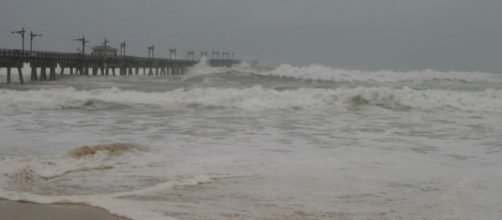The Climate in Central America has suddenly gone for a toss, and affected flights with many of them canceled at Minneapolis-St. Paul International Airport. All flights had to be grounded on Saturday afternoon because of snow piling up on the runways. Simultaneously, blizzard conditions prevailed in the region of Sioux Falls which led to the closure of the airport in South Dakota for the second day.
Chicago Tribune reports that lives have been thrown into disarray with roads blocked and travel advisories issued. Authorities have closed a number of highways in southwestern Minnesota.
To make matters worse, the National Weather Service has predicted continuous and heavy snowfall in certain places.
Effects of climatic disturbance
This situation is an indication of the future conditions. Last year, the country had faced the fury of three hurricanes in quick succession that threw life out of gear and damaged the infrastructure. The climate disorder that has developed now in Central America is expected to persist for some more time in Minnesota, Wisconsin, and Michigan before it changes direction and moves towards New York state and New England.
Heavy snowfall has been recorded in parts of northern Wisconsin, and this could keep increasing by Sunday evening. The National Weather Service has issued warnings of possible coastal flooding along Lake Michigan in Wisconsin and Illinois.
Residents of Chicago have been cautioned about high waves.
The storm accompanied by powerful winds have affected the infrastructure. Thousands of customers in Michigan have been left without power, and the area could face more severe conditions during the weekend. In Texas, there were hailstorms while lightning struck and damaged a couple of houses in Austin.
Erratic climate spells disaster
No one can predict how the climate will behave and meteorologists try to make some forecast based on past records supplemented by data retrieved from satellites. However, sudden snowstorms, hurricanes, and floods cause havoc and damage the infrastructure like electric grids and roads. These can and do make life difficult, and the current spate of snowfall in Central America is an example.
Such vagaries of nature are the results of global warming. Unless this is checked, there will be droughts, wildfires and sudden floods that will be accompanied by mudslides and miseries. In order to reduce the effect of global warming, the world must turn away fossil fuels and encourage alternative sources of energy like solar power or electricity.


